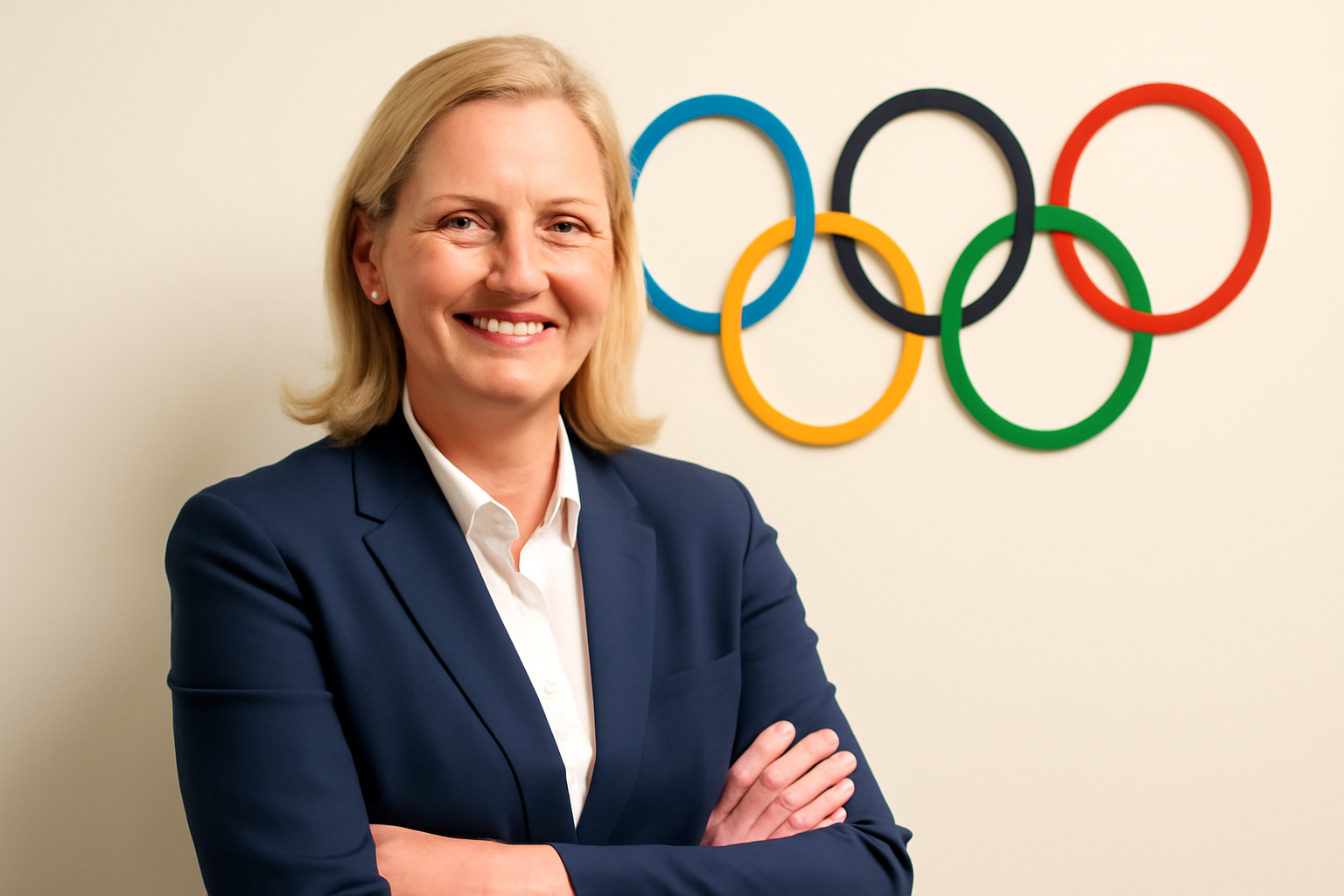
Introduction
Kirsty Coventry, a former Olympic swimmer, has shattered a significant glass ceiling by becoming the first female president of the International Olympic Committee (IOC). Her election marks a historic moment for the IOC, as she takes on the leadership role in an international sporting body traditionally dominated by men.
Breaking Barriers
Having secured the position after a competitive election where she outpaced six male candidates, Coventry expressed her gratitude and disbelief, stating, “The young girl who first started swimming in Zimbabwe all those years ago could never have dreamt of this moment. Glass ceilings have been shattered today.” Her journey from a swimmer in Zimbabwe to the presidency of the IOC is indeed inspiring.
Born in 1983 in Zimbabwe, Coventry began swimming at a young age and represented her country in her first Olympics in 2000. She went on to win gold medals in the 200-meter backstroke during the 2004 and 2008 Olympic Games, alongside several other medals, establishing herself as a celebrated athlete.
Political Controversies
Despite her accomplishments, Coventry's career has not been without controversy. She was often referred to as Zimbabwe’s “golden girl” by the former dictator Robert Mugabe and accepted a substantial monetary reward for her Olympic victories during a period of economic hardship in Zimbabwe due to hyperinflation. This decision was criticized by many who believed it was insensitive given the circumstances faced by the country's citizens.
Her political career further stirred debates when she became the sports minister under President Emmerson Mnangagwa’s administration, a government criticized for its lack of democratic principles. Her tenure was marked by Zimbabwe being banned from hosting games by the Confederation of African Football due to poor stadium conditions. Additionally, her decision to send a large delegation to the Paris Olympics raised eyebrows considering the number of athletes involved.
Nonetheless, Coventry defended her involvement in Zimbabwean politics by expressing her belief in creating change from within the system. “I don’t think you can stand on the sidelines and scream for change. I believe you have to be seated at the table,” she said.
Position on Transgender Athletes
As she takes the helm of the IOC, Coventry faces numerous challenges, particularly around inclusion and fairness in sports. One of the most contentious issues is her stance on transgender athletes.
In response to questions about athlete participation under her leadership, Coventry emphasized the importance of communication and adhering to the IOC’s values of solidarity and inclusivity. However, her position on transgender athletes, particularly transgender women, has drawn criticism from advocacy groups.
Coventry has advocated for the protection of the female category in sports, suggesting the establishment of a task force to analyze the situation. She has previously supported a blanket ban on transgender athletes' participation in the Olympics, citing the need to safeguard opportunities for cisgender women athletes. In her words, “It is very clear that transgender women are more able in the female category, and can take away opportunities that should be equal for women.”
Despite her assertions, there is ongoing debate and a lack of conclusive evidence regarding the advantage of transgender women in sports. Coventry’s stance appears to prioritize maintaining traditional gender categories in sports, which may not align with more inclusive approaches advocated by various organizations and activists.
The complexity of this issue underscores the challenges Coventry will face as the IOC president. Balancing the evolving understanding of gender with fair competition in sports is a delicate task that will require thoughtful consideration and dialogue with diverse stakeholders.
Conclusion
As Kirsty Coventry steps into her role as the president of the International Olympic Committee, her leadership will be closely watched by the global sports community. Her history of overcoming challenges, both in the pool and in the political arena, positions her uniquely to navigate the complexities of modern sports governance. However, her views on transgender athletes highlight the ongoing debate around gender, fairness, and inclusion in sports, issues that will undoubtedly shape her legacy.
Related Posts
Ryan Russell: Living Authentically as a Bisexual NFL Player
Ryan Russell: embracing authenticity as a bisexual NFL player September 11, 2018, stands out as a deeply personal day in Ryan Russell's life. Not because he achieved something on a football field, but because he lost his dear friend and college roommate, Joe Gilliam, who succumbed after a brave battle with cancer. Throughout Joe's fight, Ryan was there, supporting him every step, even dedicating [...]
Jacob Elordi Shines in a Queer Love Story "On Swift Horses"
Jacob Elordi's latest film, "On Swift Horses," might leave you guessing at first, but at heart, it's a deeply moving queer love story. It's an adaptation from Shannon Pufahl's novel, brought vividly alive by director Daniel Minahan and writer Bryce Kass, weaving together themes that explore love, identity, and self-discovery on many levels. Love unfolds in 1950s America Step back in time with "O [...]
Creating New Models for LGBTQ+ Parenting: Embracing Community and Visibility
Empowering parenthood: envisioning a truly inclusive future "I'm all in when it comes down helping people realize their dreams about becoming parents," says Marea Goodman. She's not just a midwife; she's an author and founder who built Pregnant Together, an inclusive community with a heart. Goodman passionately believes that everyone, no matter who they are, deserves a shot at parenting. With tw [...]